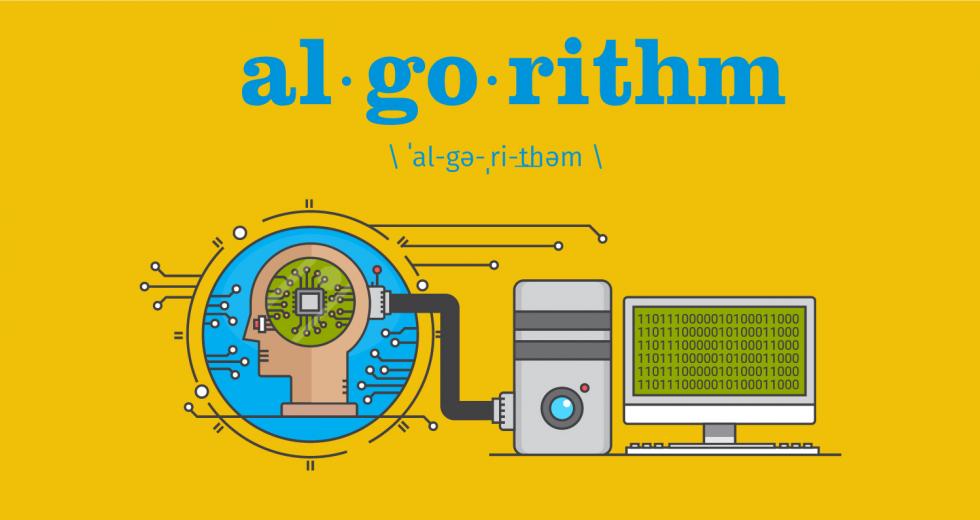A set of rules to solve a problem.
As a society, we put a lot of faith in algorithms. We trust them to do everything from tell us what we should wear to who we should date. I talk about “the algorithm” like it’s a divine force, swearing up and down that Spotify knows my soul better than I do.
But algorithms are just a set of processes or rules for calculation or problem-solving. In the U.S., interest in algorithms across social platforms like YouTube, Instagram and Facebook has been spiking to record highs since 2016, according to Google Trends.
Related – Buzzwords: Open Source
If these machine-learning algorithms are an internal combustion engine, think of big data as the fuel that keeps it firing on all cylinders, accelerating us toward a dystopian future of omniscient digital experiences. According to a study by Big Data & Society entitled “Algorithms in Culture,” algorithms have graduated from purely technical jargon into the realm of cultural influence and should be studied anthropologically.
The Buzz
In recent years there have been growing ethical concerns regarding the use of algorithms, especially since Cambridge Analytica violated Facebook’s terms by feeding users’ data into an algorithm to produce micro-targeted political marketing.
Algorithms are partially to blame for online “bubbles” explains David Prinzing, the founder of Roseville-based online advertising software company Algorithmic Ads. “We’ve seen our society become polarized — some of that comes from recommendation systems and referral systems,” he says. As digital content gets more and more tailored to users’ individual preferences, he says, “People don’t have to necessarily wrestle with counterpoints to the arguments they might make.”
This type of homogenization could lead to a more stratified society where we lose the benefits of diversity.
The Word
Prinzing remains an advocate for algorithms, particularly as a fundamental component of artificial intelligence with real benefits. Before selling Algorithmic Ads, his team created an algorithm to process a client’s existing branding collateral, like a website, and create new on-brand display ads for small businesses that can’t afford high-priced creative.
As workers anticipate how algorithms will replace human jobs, Prinzing says, “The question is not ‘Is it hard?’ or ‘Is it complex?’ the question is ‘Is it repetitive?’” If a job is repetitive, then it can probably be replaced. However, that’s not necessarily a cause for alarm. “I think the costs are worth the benefits,” Prinzing says. “When we’ve succeeded in solving one problem, we’ll discover new ones.
Got a word thats been buzzing around your office? Tweet us @Comstocksmag with the hashtag #WhatstheBuzz



